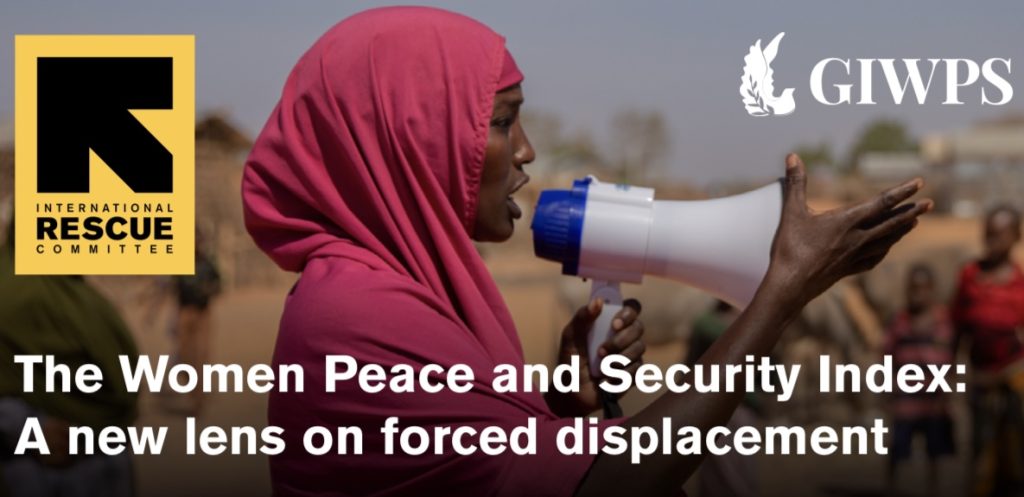The Georgetown Institute for Women Peace and Security and International Rescue Committee’s report demonstrates the negative impact of displacement on women’s inclusion, justice, and security.

The International Rescue Committee (IRC) and the Georgetown Institute for Women Peace and Security has published a report that links the women peace and security index with a new lens on forced displacement. The report highlights the disadvantages displaced women and girls face in terms of their justice, inclusion and safety and calling for targeted support.
The report highlights that even prior to the COVID-19 pandemic, displaced women faced much higher risks than host community women of violence at home, were consistently less likely to be financially included, and often experienced less freedom of movement.
The report presents information about the dynamics of IDPs, stating that they mostly live in low- and middle-income countries.
As the report finds in five African countries – Ethiopia, Nigeria, Somalia, South Sudan,
and Sudan – displaced women experienced an average disadvantage of about 24 percent compared to host community women.
Displaced women also faced greater economic marginalisation and financial exclusion, and often felt less free to move about. And they generally faced much higher risks than host community women of intimate partner violence at home, rising as high as 42 percent in South Sudan.
The report underlined the security dimension as heightened insecurity is faced by displaced women. In all five countries investigated in the report, levels of current intimate partner violence were higher among displaced women than among women in the host population.
The report also demonstrated crucial information about economic inclusion which was also hampered by the Covid-19 pandemic. Across all five countries, employment rates for displaced men were at least 90 percent higher than for displaced women.
To access the report click here.
About the Women Peace and Security (WPS) Index
The Women Peace and Security (WPS) Index, published by Georgetown University’s Institute for Women, Peace and Security (GIWPS) and the PRIO Centre on Gender, Peace and Security (PRIO GPS) draws on recognized data sources to measure and rank women’s inclusion, justice, and security across 11 indicators in 170 countries. .

